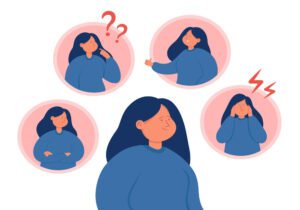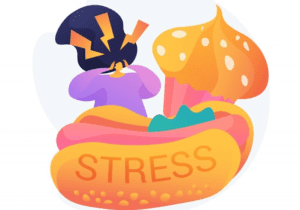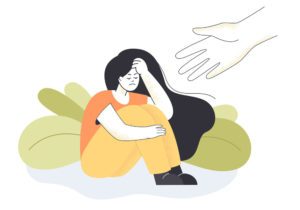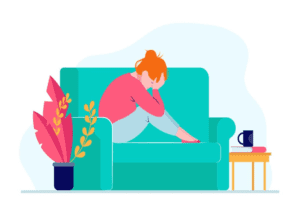How to Help Your Child with Anxiety Through Divorce
This article has been researched and written by Nayla Daou. AI has not been used in producing this article.
Divorce is a significant change that affects every member of a family. For children, the uncertainty and adjustments required during this time can lead to feelings of anxiety and stress. As parents, it’s crucial to support and guide your child through this challenging period. This article provides strategies to help your child manage anxiety and cope with the changes brought on by divorce.
Understanding Your Child’s Anxiety
Anxiety in children can manifest in various ways, often affecting both their emotional well-being and physical health. It’s vital to understand that these symptoms can vary greatly from one child to another, and what might be a sign of anxiety in one child might not be in another. Recognizing these signs is the first step in providing the necessary support. Common symptoms of anxiety in children include:
- Changes in behavior, such as increased irritability or aggression
- Mood swings or emotional outbursts that seem out of character
- Withdrawal from activities they previously enjoyed
- Expressing worries or fears more frequently than usual
- Difficulty concentrating or sudden drops in academic performance
- Physical symptoms like headaches, stomachaches, or changes in eating and sleeping patterns
- Clinging behavior, especially in younger children
Understanding these symptoms can help you identify when your child might be struggling with anxiety and ensure they receive the support and care they need during the challenging times of a divorce.
Open Communication
One of the most effective ways to help your child through this time is by maintaining open lines of communication. Encourage your child to express their feelings and thoughts about the divorce. Listen actively and validate their emotions, showing them it’s okay to feel upset or confused. Avoid negative comments about the other parent, as this can increase anxiety and conflict loyalty feelings.
Consistent Routines
Children thrive on consistency and routines, which can provide a sense of security during uncertain times. Strive to keep daily schedules as regular as possible, including mealtimes, school routines, and bedtime rituals. Consistency between both parents’ homes can also help children adjust more quickly to their new living arrangements.
Quality Time
Spend quality time with your child, engaging in activities they enjoy. This one-on-one time is vital for reinforcing your bond and providing them with a sense of stability and love. It’s also an opportunity to observe any changes in their behavior or mood that might indicate increased anxiety.
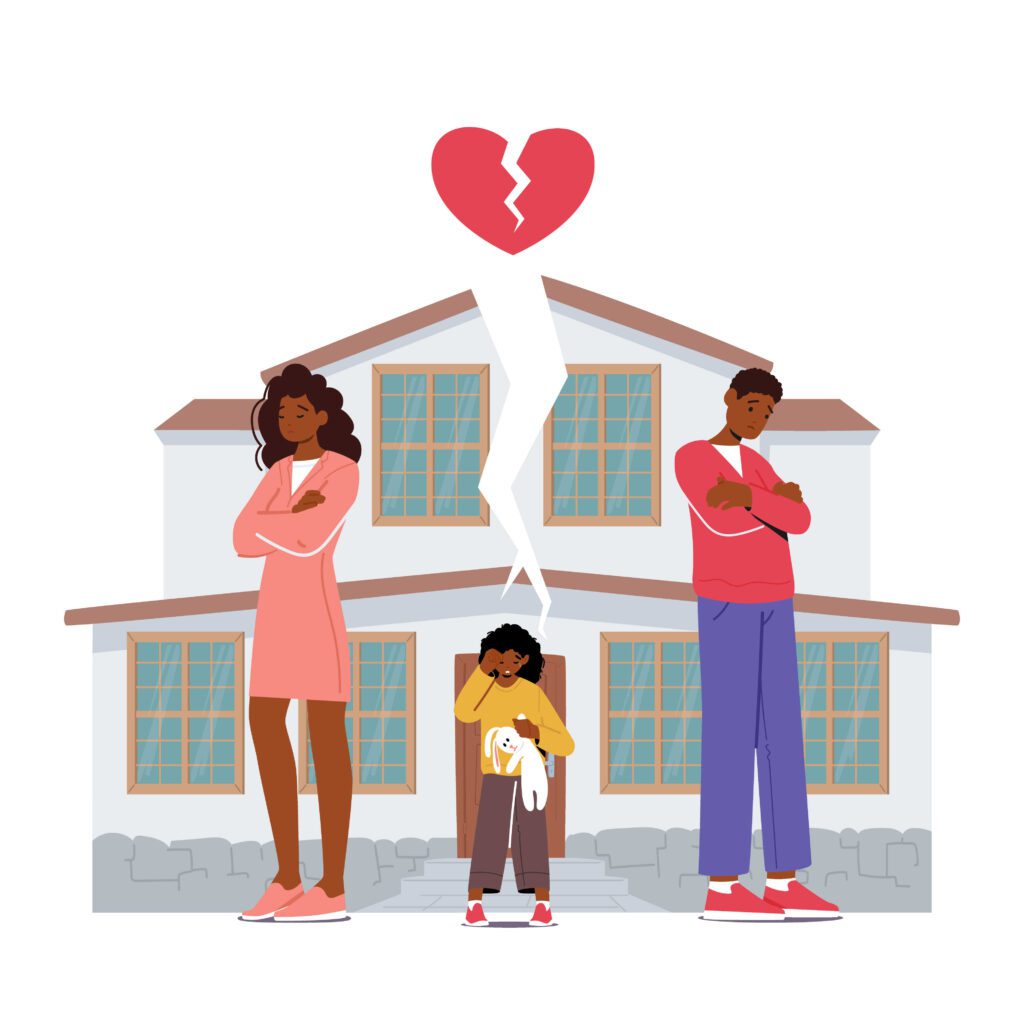
Professional Support
When a child’s anxiety seems to deepen or persist, seeking professional help can be a wise and necessary step. Therapists and mental health professionals, like those at ClearMinds, are skilled in providing the support and strategies children need during challenging times, including navigating through a family’s divorce. These specialists use play therapy sessions tailored to help children understand and express their emotions in a healthy way.
Opting for family therapy can be particularly effective. This approach not only supports the individual child but also addresses the broader emotional currents flowing through the family unit. It’s a space where every family member can learn coping strategies, enhancing mutual support, understanding, and resilience.
Coping Strategies for Anxiety
Teaching your child healthy coping mechanisms is essential for managing anxiety. Encourage them to express their feelings through creative outlets like drawing, writing, or music. Physical activity can also be a great stress reliever, so promote regular exercise or participation in sports.
Mindfulness and relaxation techniques, such as deep breathing exercises and meditation, can help calm anxious thoughts and promote emotional regulation. There are many child-friendly apps and online resources available to guide these practices.
Building a Support Network
Having a support network outside the immediate family can provide additional comfort and reassurance to your child. This network might include close relatives, friends, teachers, or counselors. These individuals can offer a listening ear, emotional support, and a sense of normalcy amidst the changes.
Co-Parenting and Consistency
Successful co-parenting plays a crucial role in reducing anxiety for children during and after a divorce. Efforts to communicate effectively, make decisions jointly regarding your child’s welfare, and maintain consistent rules and expectations across both households can significantly ease your child’s adjustment to the new family dynamic.
Moving Forward Together
Divorce is a challenging time for any family, but with patience, understanding, and the right strategies, you can help your child manage anxiety and emerge resilient. Open communication, consistency, quality time, professional support, and a strong support network are key components in navigating this journey. By fostering a loving and supportive environment, you can help your child adapt to their new reality with confidence and security.
Contact a member of our team to schedule an appointment.
How to Help Your Child with Anxiety Through Divorce
Divorce is a significant change that affects every member of a family. For children, the uncertainty and adjustments …
Depression vs Sadness: Understanding the Difference
While often used interchangeably, the terms “sadness” and “depression” represent distinct emotional states, each with …
5 Simple Mental Health Practices for Your Everyday Life: Nurturing Your Body & Mind
In today’s fast-paced world, it’s becoming increasingly evident that we need to place our mental health at the forefront
Ways to Reduce Anxiety in 2024
As we say farewell to 2022 and usher in the New Year, we look towards the future. With New Year’s resolutions on the docket, many of us are striving to achieve a calm life …
Navigating Compassion Fatigue in the Digital Age: A Call to Prioritize Mental Well-Being
Amid the constant stream of information and images that flood our screens, the toll on our mental well-being can be …
The Link Between Anxiety and Overeating
All of us have encountered moments of stress and unease throughout our lives. These feelings of anxiety not only bring…
10 Steps To Fix A Toxic Relationship
Every relationship has its fair share of ups and downs, but when toxicity creeps in, it can become a serious challenge. Toxic relationships can be emotionally draining and detrimental to our overall …
Exploring the Benefits of EMDR Therapy for Anxiety and Depression
Anxiety and depression are two of the most common mental health disorders worldwide, affecting millions of people every year. While traditional talk therapy and medication can be …
Health Effects of Untreated Depression
It’s very common to feel sadness at one point or another in our life. Depending on your specific circumstances, you may even feel …
Psychologists vs. Psychiatrists – What’s the Difference?
Clients shouldn’t have to jump through hoops to understand who the perfect candidate is for treating their emotional and/or behavioral struggles. Yet, understanding the type of provider you should see during …





